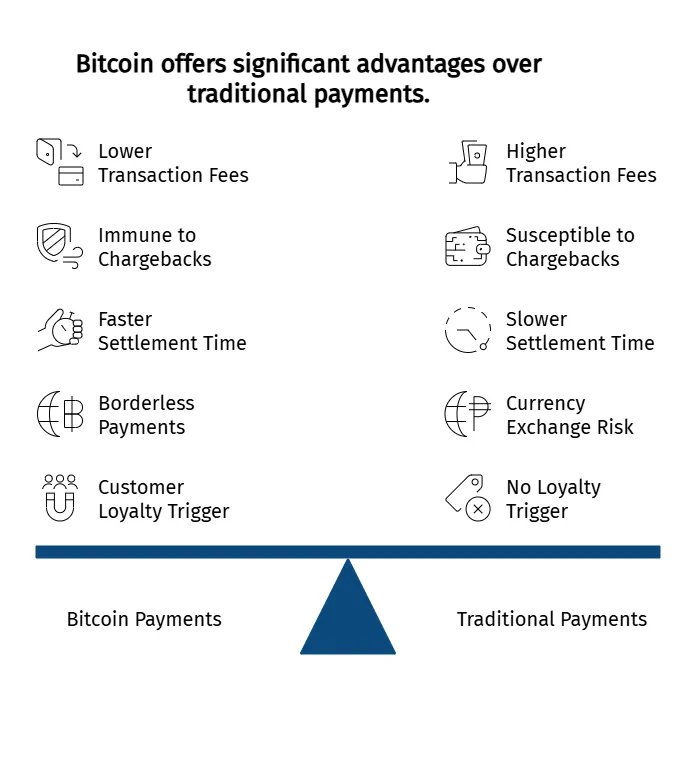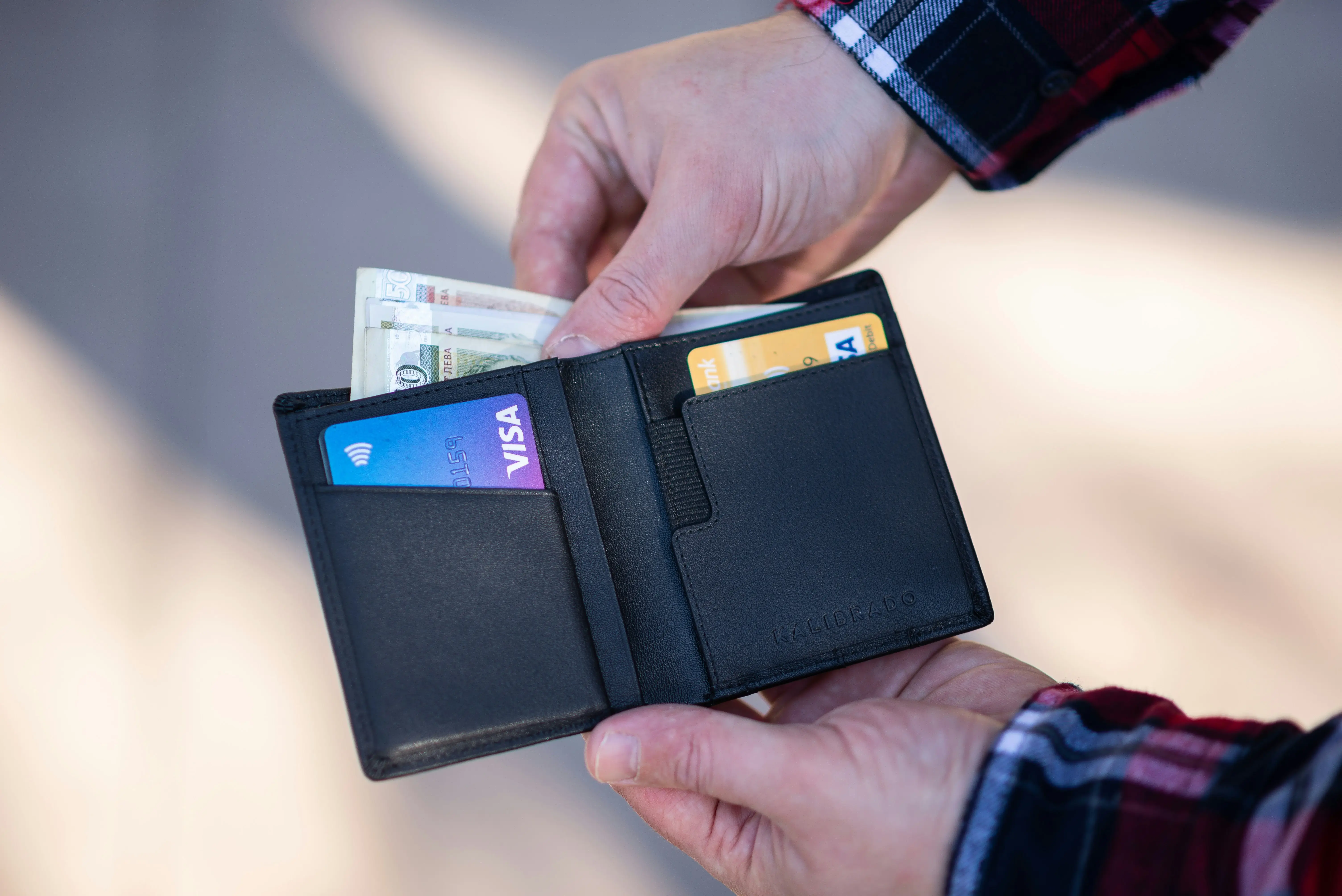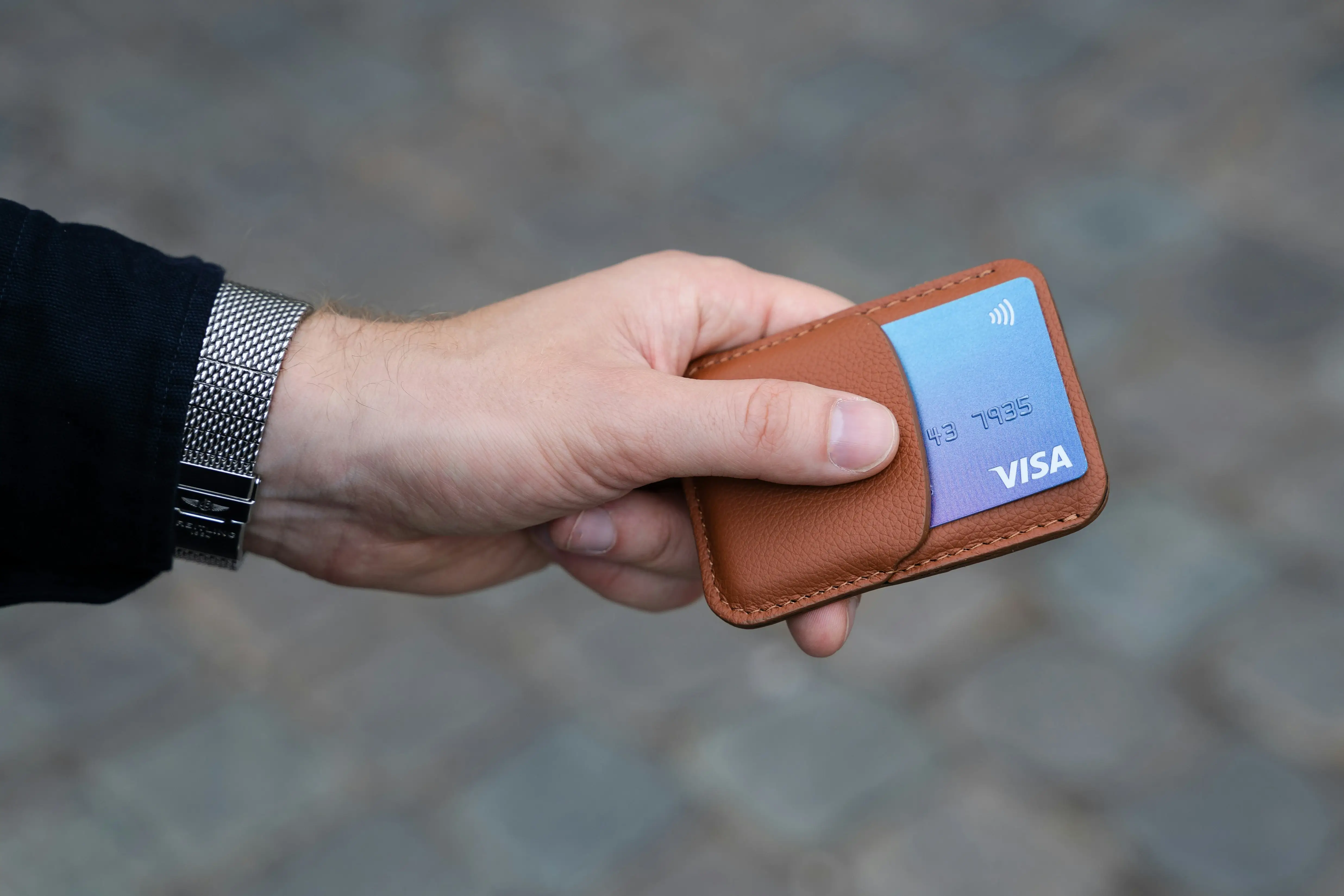How to Accept Bitcoin as Payment for Your Business in 2026


Across Europe and beyond, Bitcoin is entering the mainstream not as an investment, but as a legitimate and effective payment method.
Rather than asking "Should we accept Bitcoin?", businesses are now asking "How can we integrate it smoothly into our operations?" The reality is clear: digital-first customers want more options, and Bitcoin is at the top of their list.
At FirmEU, we support businesses in 36 SEPA countries that embrace cryptocurrency as part of their payment system. In high-risk sectors such as gaming, adult content and CBD, where traditional processors are increasingly restrictive, Bitcoin is more than just convenient — it's a lifeline.
This guide will show you how to:
- understand what accepting Bitcoin really means
- navigate the tech and compliance setup;
- Use tools like PayFirmly to streamline crypto acceptance.
- make smart decisions around conversion, risk and regulation.
Let us demystify Bitcoin payments and help you get started with confidence.
For more information, check our guide to crypto payment processing.
What Does It Mean to Accept Bitcoin Payments?
Accepting Bitcoin involves more than simply adding a wallet address to your website. By 2026, it will mean offering customers a secure and professional payment experience, just as they would expect with card payments or PayPal.
Modern Bitcoin acceptance involves real-time pricing, blockchain monitoring, invoice generation, optional fiat conversion and full reconciliation. With providers like PayFirmly, you can access these tools without requiring in-depth technical knowledge.
Instead of manually checking your wallet, for example, you can generate branded payment links, accept in-store QR payments, or integrate with Shopify. This makes Bitcoin just another option at the checkout — one that costs less and reaches more customers.
Explore our gateway solution and see how it compares.
You don't need to own cryptocurrency to accept it. With auto-conversion, you can accept Bitcoin payments and receive euros in your bank account.
Why accept Bitcoin in 2026?
Bitcoin isn’t just hype; it solves real problems for modern merchants. The benefits extend far beyond the crypto niche to everyday operational efficiency.
Bitcoin payments incur lower transaction fees than traditional payment processing (0.5–1% vs. 2.5–4%), making them attractive for any business with a high transaction volume. They are also immune to chargebacks, which is a major advantage for industries that face frequent disputes or friendly fraud.
Furthermore, settlements occur within minutes. This improves cash flow and eliminates the inconvenience of delays of two to five days, which are common with traditional bank payments. And what about global businesses? Bitcoin enables borderless payments without currency exchange risk.
Customers who are familiar with cryptocurrency also actively seek out businesses that accept Bitcoin. It's not just a payment option — it’s a loyalty trigger.
Learn how crypto can impact customer behavior and checkout preferences
You don't have to hold crypto to accept it. With auto-conversion, you can accept Bitcoin and receive EUR in your bank account.
An increasing number of studies demonstrate that customers who are familiar with cryptocurrency tend to have higher average order values and stronger brand loyalty. These users often feel more connected to businesses that offer decentralized payment options, providing merchants with a unique opportunity to build long-term relationships through financial alignment and innovation.

Key Benefits
- Lower fees: 0.5–1% vs. 2.5–4% for credit cards
- No chargebacks: Transactions are irreversible
- Faster settlement: Minutes, not days
- Global access: Anyone with internet can pay you
- Customer loyalty: Crypto users support crypto-friendly businesses
Bonus for high-risk businesses:
If you have been rejected by Stripe or PayPal, Bitcoin could be the solution you need. PayFirmly is one of many processors built specifically for high-risk businesses.
How Bitcoin Payments Work (Step-by-Step)
The process is straightforward when a customer pays with Bitcoin:
- At the checkout, they select Bitcoin as their payment method.
- The gateway (such as PayFirmly) then generates a QR code or payment address.
- The customer then pays using their crypto wallet.
- The transaction is then broadcast to the Bitcoin network for verification.
- Once confirmed, the funds are settled — either in BTC or automatically converted to fiat currency.
This entire process typically takes just a few minutes. You can choose to receive cryptocurrency directly, or let the provider convert it instantly to EUR, USD or GBP.
A step-by-step guide to accepting Bitcoin payments
Step 1: Choose a Payment Gateway
The first step is to select a provider that meets your needs. We recommend PayFirmly for EU-based merchants. It offers:
- Instant fiat settlement (EUR, USD, GBP)
- Hosted checkout pages and REST API
- Plugins for WooCommerce and Shopify
- Support for 50+ cryptocurrencies including BTC, ETH, USDT
- Specialized onboarding for high-risk industries
Step 2: Decide Whether You’ll Hold or Convert Crypto
You can accept Bitcoin and:
- keep it in your own wallet for investment potential (but be aware that it is volatile).
- Automatically convert it to fiat currency upon receipt for stability and easier accounting.
With PayFirmly, you can configure these options per transaction, so you stay in control.
A growing number of merchants are also embracing stablecoins such as USDT and USDC. These assets offer the advantages of cryptocurrency, such as borderless transactions, low fees and fast settlement, without the price volatility of Bitcoin. They are particularly effective for subscriptions and recurring payments.
Step 3: Set Up Your Integration
- If you have an online store, use platform plugins to enable cryptocurrency payments at the checkout.
- If you sell via email or social media, create one-time payment links.
- For in-person payments, display dynamic QR codes that sync with your phone or point-of-sale (POS) device.

Step 4: Inform Your Customers
Crypto buyers are highly engaged. Add a 'We Accept Bitcoin' badge to your website, update your FAQs and include a payment policy that explains your refund process. The more confidence you inspire, the higher your conversion rate will be.
Customers choose to pay with Bitcoin for various reasons, such as financial sovereignty, anonymity, international flexibility and ideology. Understanding these motivations will help you to craft clearer messaging and to tailor the user experience to resonate with your crypto audience.
Step 5: Monitor Transactions and Reconcile Daily
Use your crypto payment dashboard to monitor incoming transactions, pending confirmations and auto-conversions in real time. Platforms like PayFirmly offer reconciliation tools that can sync with your accounting system, reducing manual work and avoiding errors in reporting.
This step is particularly important for businesses that process high daily volumes or operate across multiple channels.
Step 6: Train Your Team on Support and Refunds
Your staff should be familiar with how crypto refunds are handled, how to check transaction status and how to assist customers with basic payment issues. Although chargebacks don’t apply to Bitcoin, support enquiries may still arise. A well-trained team will ensure a smooth experience for customers and build trust with first-time crypto users.
Step 7: Review and Optimize Your Crypto Strategy Monthly
Track the adoption rate of crypto payments, the fees saved and customer behaviour. If uptake is low, consider offering small discounts or loyalty perks to incentivise crypto usage. If volume increases, consider offering custom checkout flows or accepting additional coins.
Accepting Bitcoin isn’t a static process — it evolves alongside your customers.
Special Use Case: Bitcoin for High-Risk Businesses
Traditional payment processors often block or overcharge businesses in the adult entertainment, CBD, foreign exchange (forex) and gaming industries.
Bitcoin, on the other hand, levels the playing field. Without a middleman to decline transactions, payments are made instantly and directly.
This provides high-risk merchants with a secure and reliable alternative to unreliable card networks.
Managing Price Volatility like a Pro
Although Bitcoin’s price can fluctuate rapidly, this doesn’t have to affect your business.
With most modern gateways, you can:
- Auto-convert crypto to fiat upon receipt
- Hold a portion as BTC and convert the rest
- Set alerts or thresholds for manual conversion
The key is flexibility. Your provider should give you control over how and when settlements happen, either per transaction or per day.
The Risk of Unstructured Crypto Adoption
Implementing Bitcoin payments without a plan can be counterproductive. Businesses that skip training, compliance checks or integration testing often encounter refund disputes, accounting discrepancies or even legal issues.
If you're new to crypto, it's especially important to work with a partner who offers proper onboarding, documentation, and ongoing support.
Tax and Legal Considerations
Although Bitcoin payments are traceable, this does not mean they are hands-off. Merchants must:
- Record the value of each crypto payment at the time of sale
- Report income in their local currency
- Keep records of transactions, wallet addresses, and conversion rates
FirmEU’s accountant partners specialise in crypto-tax compliance and can provide guidance tailored to SEPA regulations.
Bitcoin isn’t optional anymore
If you accept Bitcoin in 2026, you won't just be adding a payment method; you'll be opening your business up to new markets, reducing fees and increasing resilience in a rapidly changing economy.
The technology is ready. The demand is here. The right partner — like PayFirmly — can make it effortless.
The next three to five years will likely see even greater crypto integration across both B2C and B2B markets. From enterprise invoicing to peer-to-peer commerce, blockchain-based payments will offer greater efficiency, privacy and control than legacy systems. By getting in early, your business will not only keep up, it will lead the way.
FAQs
No. FirmEU is not a bank or financial institution. We operate as an independent matchmaking platform, connecting businesses with verified financial partners. All onboarding, KYC, and approval decisions are handled directly by the financial institution.
Still Have Questions?




Find the Right Banking and Payment Processing Partner for Your Business
Tell us about your company, and we’ll match you with the most suitable global banking or payment providers from our verified network.




%20(1).webp)
